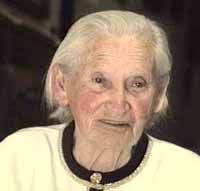"THE SHTETL
|
|
|
Introduction"On Sunday, Elul 17th , 5702, (8/30/1942), the Vishnive ghetto was annihilated. The church bells began ringing early in the morning, announcing to the gentiles of the surrounding villages about the slaughter. By the thousands, they poured into town, filled its streets and gathered near the synagogue. They watched the victims burning, some still alive." (from the Vishnive Memorial Book, Published in Israel, 1972).Two weeks later, between Rosh Hashana and Yom Kippur, I was born in Eretz Israel. My parents are smiling happily in our pictures, proud of their first born child in a renewed homeland. I was growing up under the Mulberry tree between Hashachar and Avoda Streets in Kfar Saba. At that time there were only rumors about the Holocaust. People naively assumed that somehow their families would not be hurt. Four years later, by the time my brother Zvika was born, all hopes were dashed. Shlomo Elishkevich my mother's cousin, a partisan, arrived and described in great detail the awful truth about our family. My parents were devastated. My Mother was the youngest child of her family. Facing the cruel reality that she was the sole survivor, caused her nearly unbearable pain. Of my father's large family, only he along with his brother Gershon and sister Rivka were left . I lovingly absorbed my parents' stories about the bygone world of their shtetl. I fully identified with their worries about life and death, family and children. It gave me a great desire to contribute happiness and security to my family and society, and to prove that goodness and righteousness still exist in this world. My personality has been shaped by these stories as much as by my growing up in Israel. The ringing of the church bells on that Sunday the 17th Elul, 5702 (8/30/1942) is reverberating in my ears. It is reminding me that my coming into this world was meant to preserve the long chain of my family and to extend it to my descendants. The following is a collection of stories about life in Vishnive* as reflected through the Elishkevich family saga. These stories were told to me by my Mother of blessed memory, Chaia Elishkevich Rogovin. The period covered based upon her own experience, is from World War I (1915) until her Aliyah to Eretz Israel in October, 1938. The description of the period from October 1938 until the end of World War II, including the destruction of the shtetl, is based upon family letters and Holocaust survivors testimonies. In my Mother's final years, I tried with her help to reconstruct the events in her shtetl from her childhood to adulthood. Sometimes I tried to find her feelings during all of these events. "What do you need it for?" My mother asked. "I want to open a window to lives in a bygone world, and preserve the memories for the coming generations. You are our link to this world," I replied.
Mother died on the 20th Elul, 5760.
Dvora ( Rogovin ) Helberg * Vishnive, nowadays in Belarus, is also known as: Vishnev, Vishneva, Vishnevo, Vishniva, Visnava, Visneva, Visnevo, Viszniev, Wisznievo, Wiszniew, Wiszniewo. |
Contents
Appendix
|
